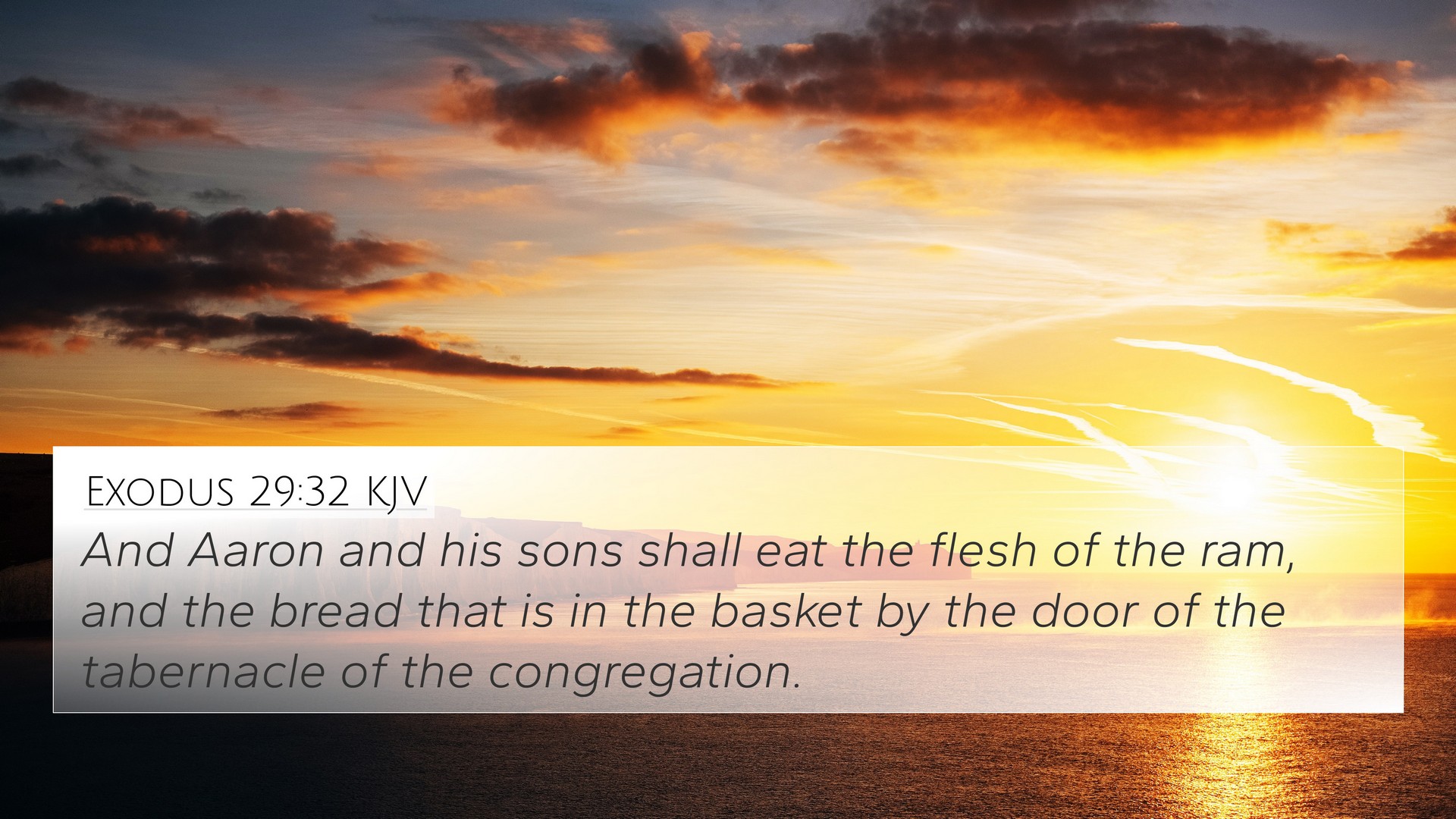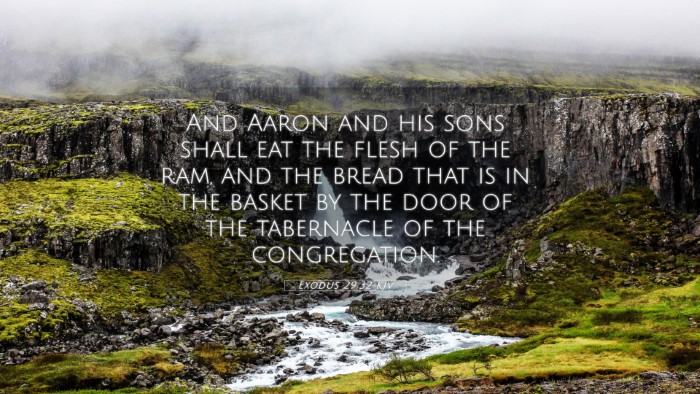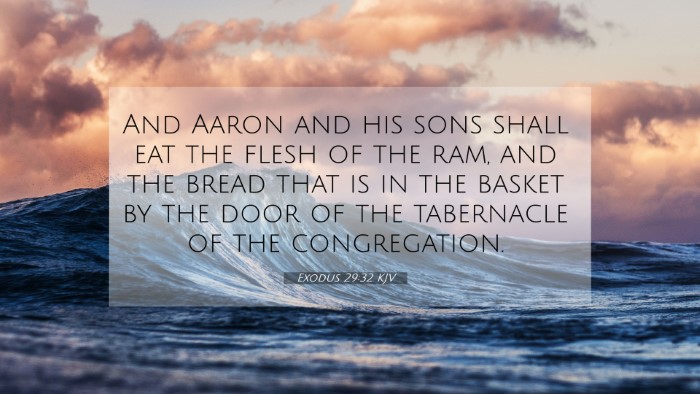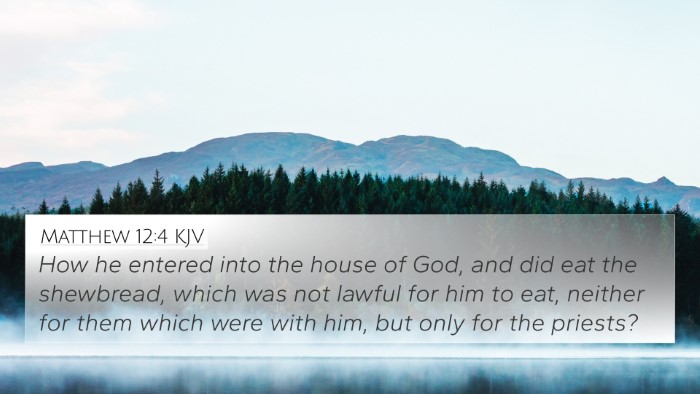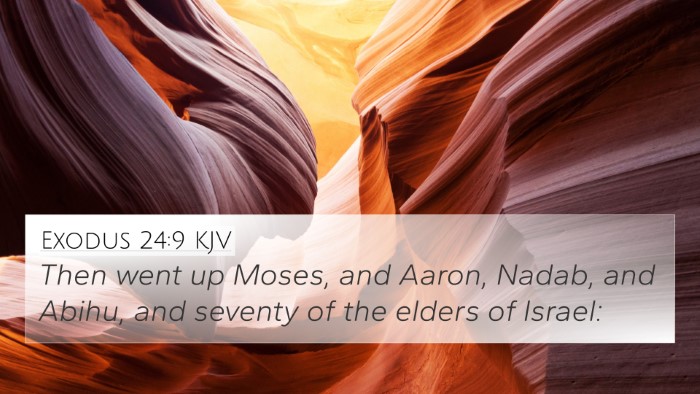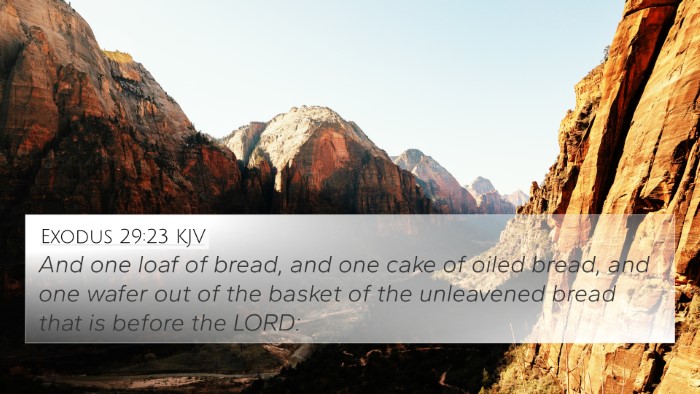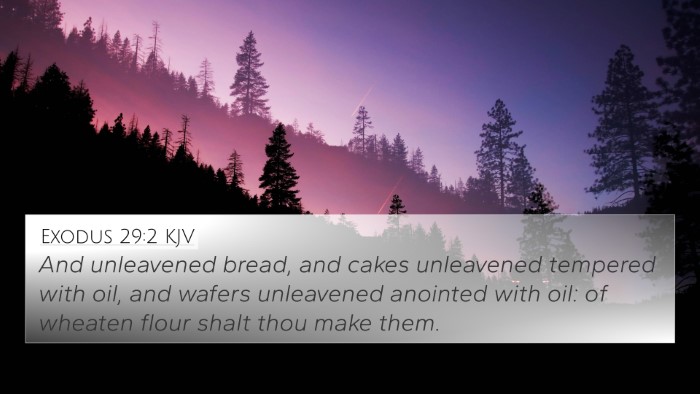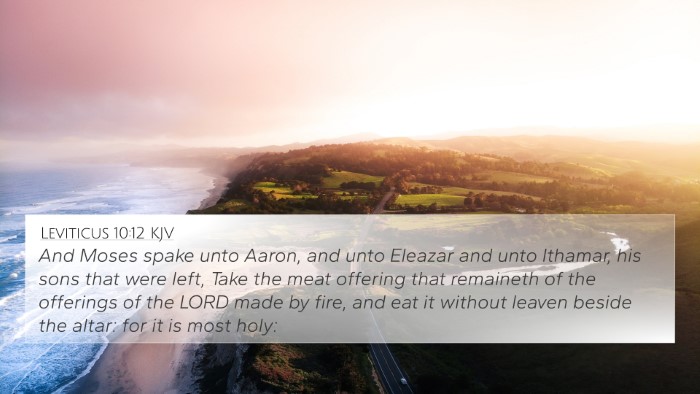Exodus 29:32 - Insights and Interpretations
Verse Reference: Exodus 29:32
Verse Text: "And Aaron and his sons shall eat the flesh of the ram, and the bread that is in the basket, by the door of the tabernacle of the congregation." (KJV)
Summary of Meaning
This verse is a part of the instructions given by God regarding the consecration of Aaron and his sons as priests. The act of eating the sacrificial flesh signifies their new status and responsibilities in serving before the Lord. The eating is not just a physical act but a ritual that entails participation in the sacred and covenant relationship with God.
Detailed Interpretations
Matthew Henry's Commentary
Henry emphasizes the significance of participation in the sacrifices as a means of acknowledging God’s provision and grace. The priests partaking of the RAM’s flesh indicates their investment in the work of the ministry. By consuming the offerings, they express gratitude and solidarity with the people they serve.
Albert Barnes' Commentary
Barnes points out that the consumption of the sacrifice was essential in the context of the covenant established by God with His people. It symbolizes the priests' role as mediators and their need to be sanctified in order to fulfill their functions adequately, thus reinforcing their connection with the people and God.
Adam Clarke's Commentary
Clarke elaborates on the symbolism tied to the offerings consumed by the priests. He notes that this act signifies their exclusion from the common activities of the people, emphasizing their unique sanctified role. The place of consumption, at the door of the tabernacle signifies accessibility to God while recognizing the sanctity of the priesthood.
Cross-References
- Leviticus 6:26 - Another verse discussing the priests eating of the sacrifices, reinforcing their sacred duties.
- 1 Peter 2:9 - Refers to believers as a royal priesthood, connecting the New Testament to the themes of priestly duties.
- Exodus 12:8 - Mention of eating in the context of the Passover, highlighting the importance of shared meals in covenant rituals.
- John 6:51 - Jesus claiming to be the bread of life, drawing a parallel with sacrificial rites.
- Hebrews 5:1 - Discusses the role of high priests, tying to Aaron’s succession in priestly duties.
- Numbers 18:10 - Describes holy offerings for the priests, reinforcing the sacredness of their calling.
- Isaiah 61:6 - Offers a powerful image of being ministers of God's presence, which connects with priests' roles.
Thematic Bible Verse Connections
This verse connects numerous themes across the scripture, particularly regarding sacrifice, priesthood, and covenant relationships. The act of eating signifies not only sustenance but also unity with God’s purpose, drawing parallels with the Lord's Supper in the New Testament, where communion serves as a remembrance of the ultimate sacrifice.
Conclusion & Relevance
Exodus 29:32 opens a window into the understanding of priestly duties and their significance in the faithful community of ancient Israel. The practice of eating sacrificial offerings symbolizes a deep connection and the gravity of the priestly role in representing the people before God. Such practices and their interpretations continue to hold immense relevance in understanding both Old and New Testament themes of sacrifice and communion with God.
